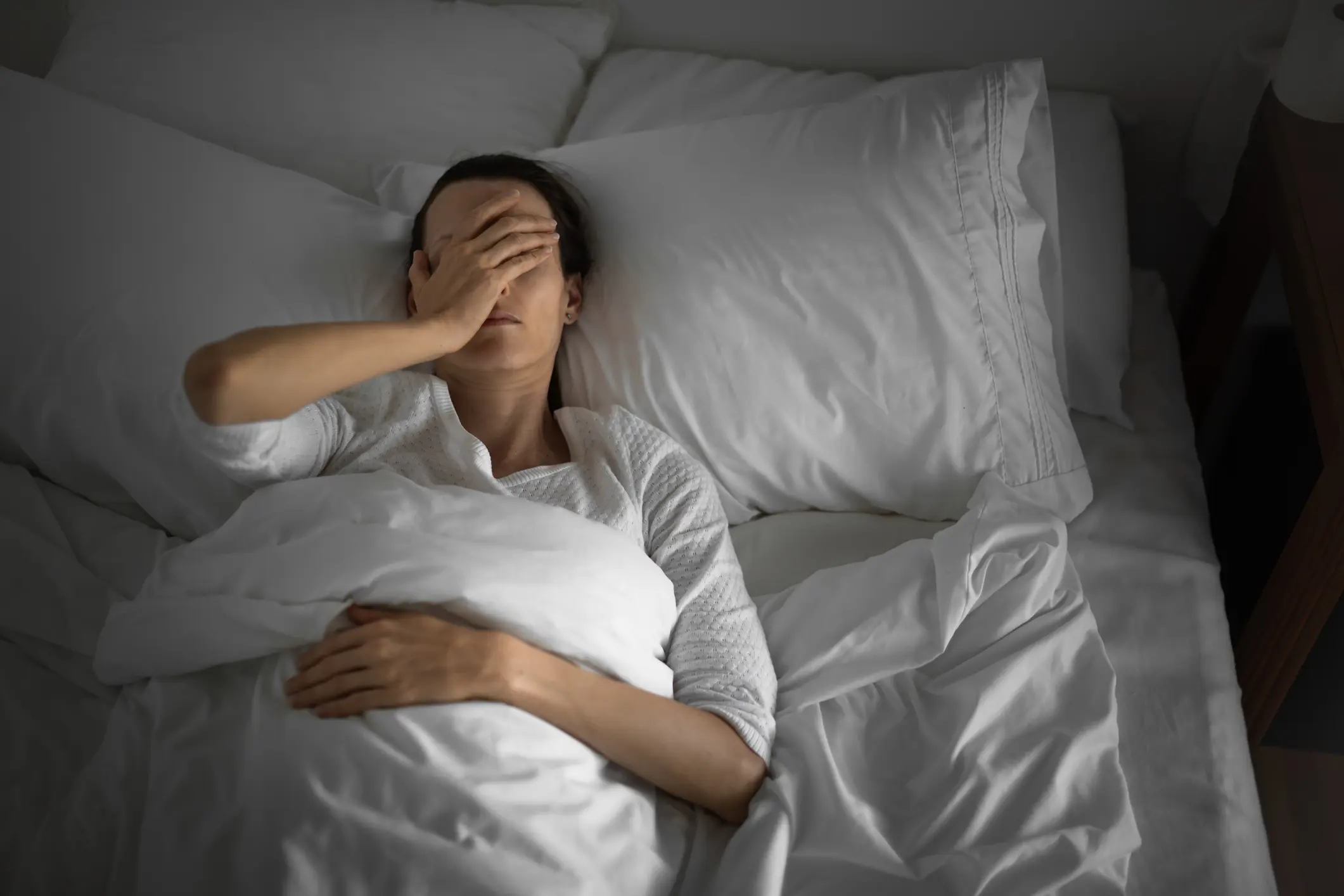
Published on Jul 17, 2023
Last modified on Jun 26, 2025
Is It The Heat Or Is It Menopause…Why Am I SO Tired All The Time?
5 min read
When people talk about symptoms of menopause, things like hot flashes/night sweats, mood changes, brain fog, and poor sleep quality get a lot of airtime…and for good reason! They’re incredibly common and disruptive to our quality of life. But menopause fatigue is VERY real and deserves to be discussed.
Now we’re not talking about the occasional yawn or mid-afternoon low energy slump. No, we’re talking deep physical and mental tiredness…exhaustion, even.
During summer when the days are long and the temperatures are rising, you may wonder…is it just the heat and sun that’s zapping my energy levels? Or menopause? Or something more serious? Or some combination of all of the above?!!
Scroll on down…we’ve got you covered.
Why would menopause make me tired?
It all comes down to…surprise, surprise…hormone fluctuations.
- As estrogen and progesterone start to fluctuate during perimenopause, many women experience stress, anxiety, and sleep disruptions. And the downstream effect of those: you guessed it, fatigue.
- Increasing cortisol leads to poor sleep, which leads to fatigue, which causes stress, which leads to more cortisol.
- Although not directly related to menopause, thyroid hormone levels play a key role in metabolism. If your body isn’t producing enough (aka hypothyroidism), you may experience fatigue, weight gain, dry skin, and thinning hair.
Why would the heat make me tired?
Turns out there’s some science behind the lazy, dog days of summer.
When it’s hot out — and especially when you’re in the sun — the body sends blood to the surface. Blood vessels dilate to allow this to happen (the technical term for it is vasodilation). In short, the body is working hard to keep you cool, and the result of this extra labor is fatigue.
Other culprits behind fatigue (that aren’t menopause and aren’t summer heat)
Emotional conditions
Fatigue and emotional health are bidirectional, meaning that depression and anxiety can result in feeling fatigued, while feeling tired all the time contributes to negative emotions.
Physical medical conditions
- Anemia results in a lack of sufficient healthy red blood cells to carry oxygen to your body’s tissues.
- Sleep apnea is marked by abnormal breathing due to an upper airway obstruction. We may not know we have it — oftentimes, the only symptom of this sleep disorder is feeling tired even though we may be sleeping through the night.
- Post-viral syndrome is a broad term for infectious and post-infectious causes of fatigue that may be worth exploring if nothing more routine pops up. The list is long and can include Epstein-Barr virus (the cause of mononucleosis), the flu, Lyme, or Covid. This condition also goes by the name chronic fatigue syndrome.
- Renal disease (aka kidney disease), liver disease, and heart disease may impact energy levels as well.
Vitamin & nutrient deficiencies
There are certain vitamin deficiencies that can cause increased fatigue as a side effect, including:
- Iron, a lack of which causes anemia
- B vitamins, especially B12
- Vitamin D, the sunshine vitamin
What can I do about it?
Lifestyle changes
Prioritizing high-quality, better sleep
Sleep is, understandably, SO important when it comes to fatigue. We should be targeting 7-9 hours, and yet studies show that 1 in 3 adults is not getting enough shut-eye. Sleep hygiene matters too — it encompasses all the things we do during the day that impact our shut-eye at night (no screens before bed, no caffeine too close to bedtime, keeping the bedroom dark and cool, having a wind-down bedtime routine, etc).
READ MORE: Trouble Sleeping During Menopause? These Natural Sleep Aids May Help.
Focusing on stress management
Because stress can manifest as fatigue, it’s right up there alongside sleep on the list of integrative interventions — although easier said than done when everything and everyone seems to be competing for our attention. Taking steps to manage stress is a form of self-care. For more tips on stress management, check out our guide to anxiety.
Incorporate physical activity
Scientists have found that regular movement decreases overall levels of tension, elevates and stabilizes your mood, improves sleep, and boosts self-esteem. Not too shabby, right? According to the World Health Organization, 150 minutes per week of moderate-intensity movement (a brisk walk counts!) is enough to support your health.
Nutrition & diet
- Avoid high-glycemic foods (e.g., sugar/artificial sweeteners and refined carbs) that cause blood sugar levels to spike. Instead, focus on getting sufficient supplies of whole grains, adequate protein, and healthy fats.
- Remember, inadequate nutrition via caloric deprivation over weeks or longer will cause fatigue.
- Be thoughtful with breakfast! You want complex carbs, protein, and fat.
- Skip the energy drinks (they’re basically just sugar and caffeine).
- Hydrate, hydrate, hydrate! Your urine should be pale and clear.
What about hormone therapy?
While hormone therapy — formerly known as hormone replacement therapy (or HRT for short) — isn’t prescribed explicitly for fatigue, it does help symptoms that can cause fatigue such as night sweats and joint pain, both of which can cause sleep disturbances.
When should I talk to an expert about my fatigue?
Even if you aren’t suffering from a specific medical condition, it may be worth consulting your women’s health provider (or Elektra!) if you identify with one or several of the following during the menopausal transition:
- You’re getting a good night’s sleep (7-9 hours per night) and STILL feeling tired.
- You experience daytime fatigue that interferes with daily life.
- You worry about falling asleep while driving or doing inactive things (e.g., watching television or attending a meeting).
- You feel the need to nap most days.


